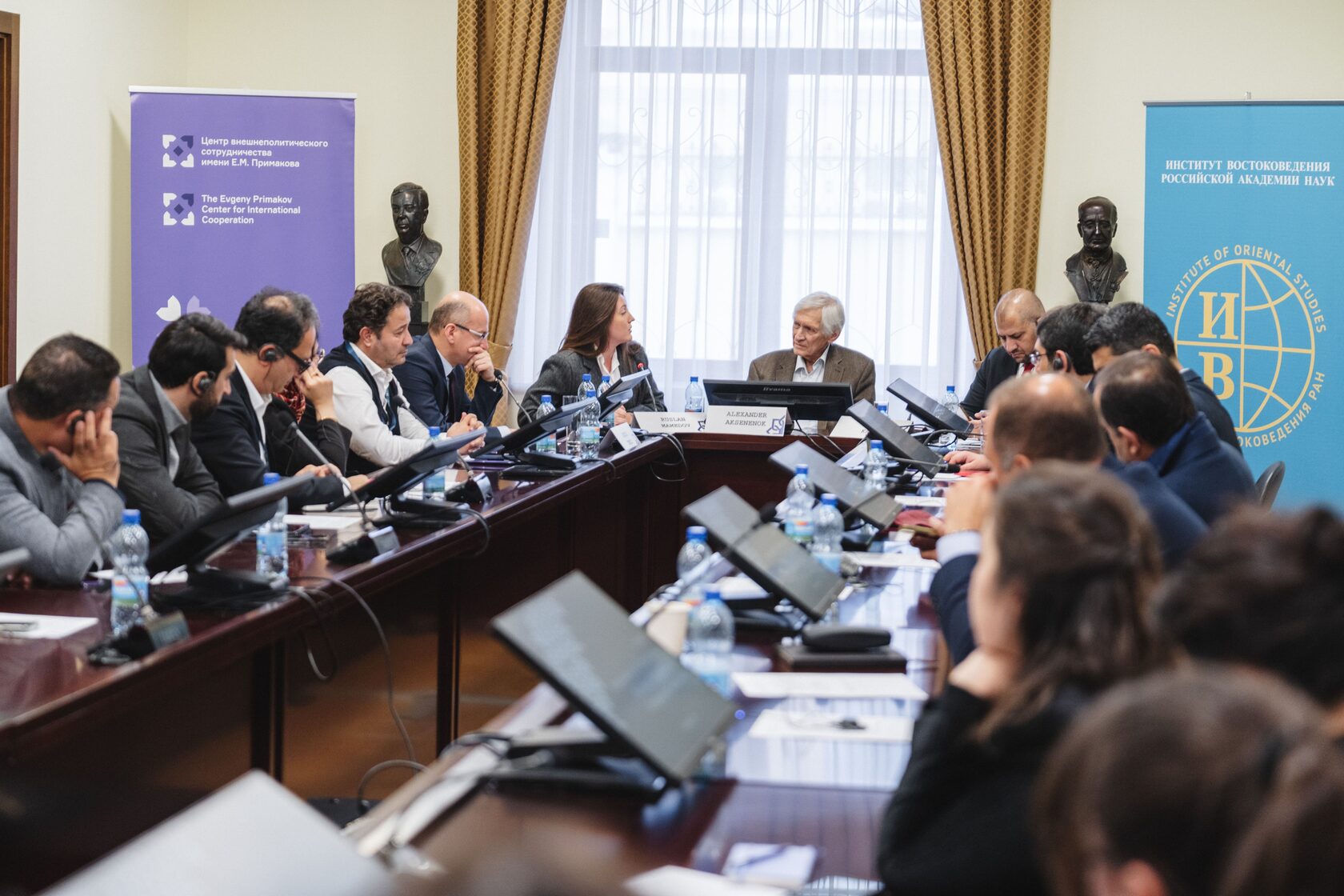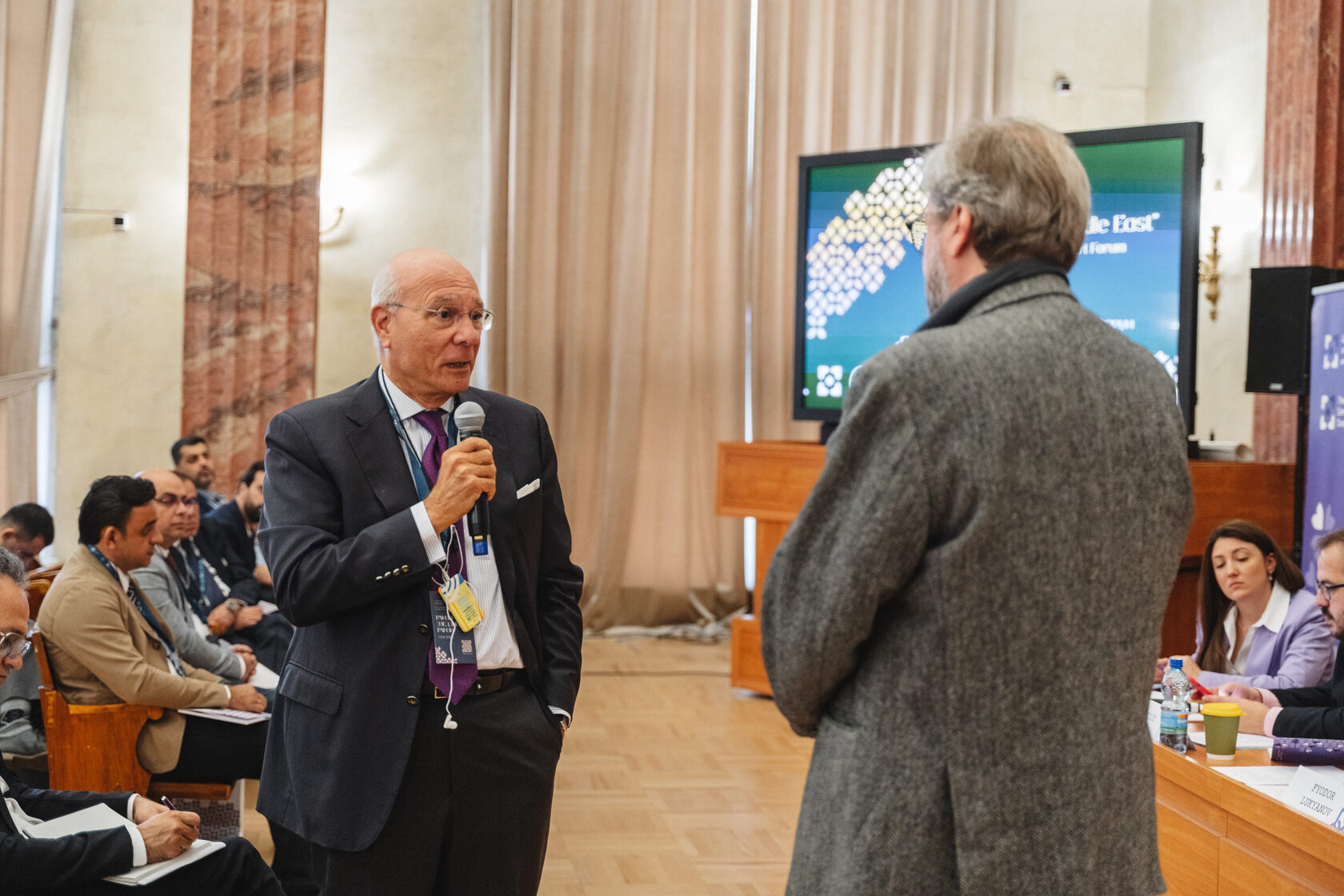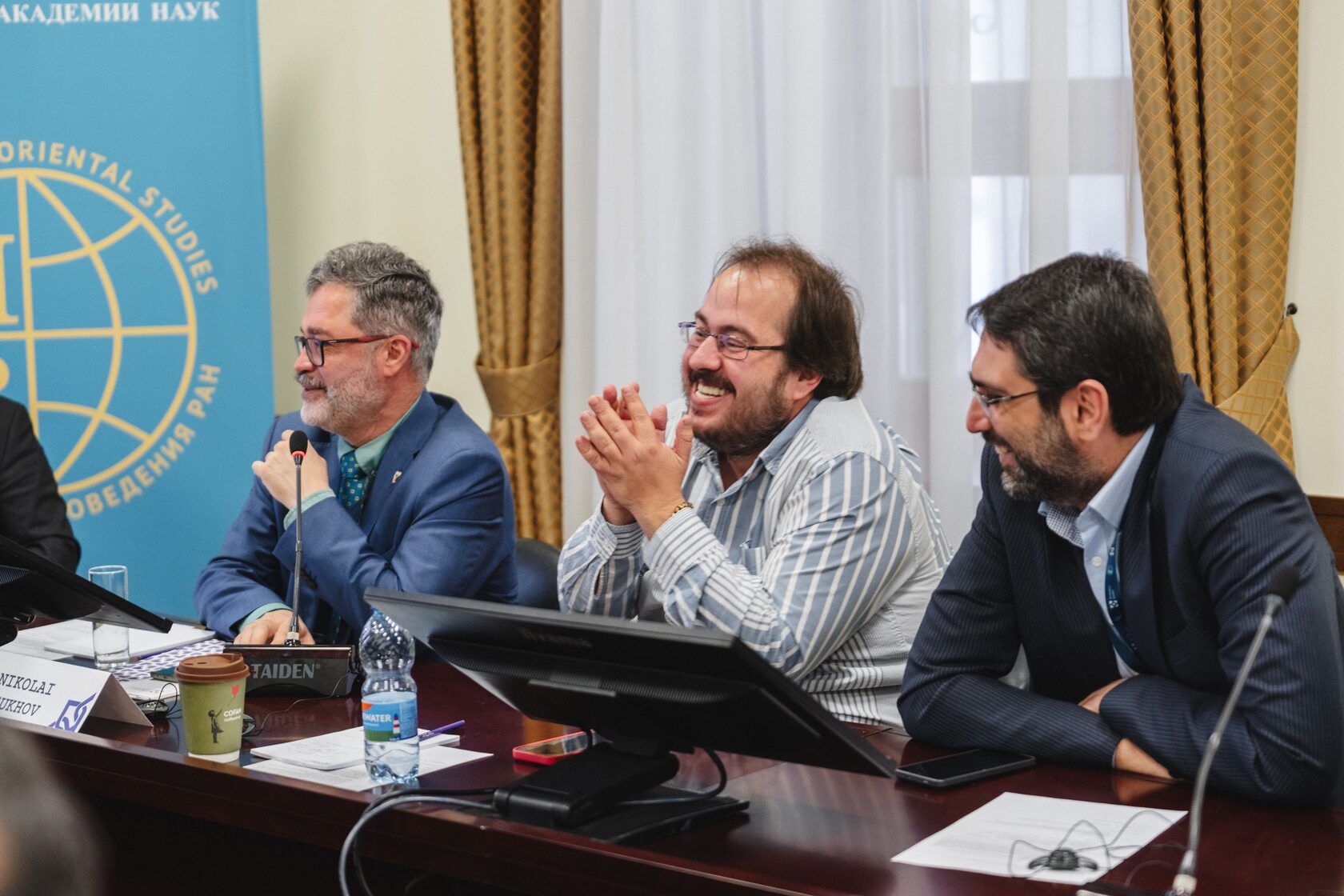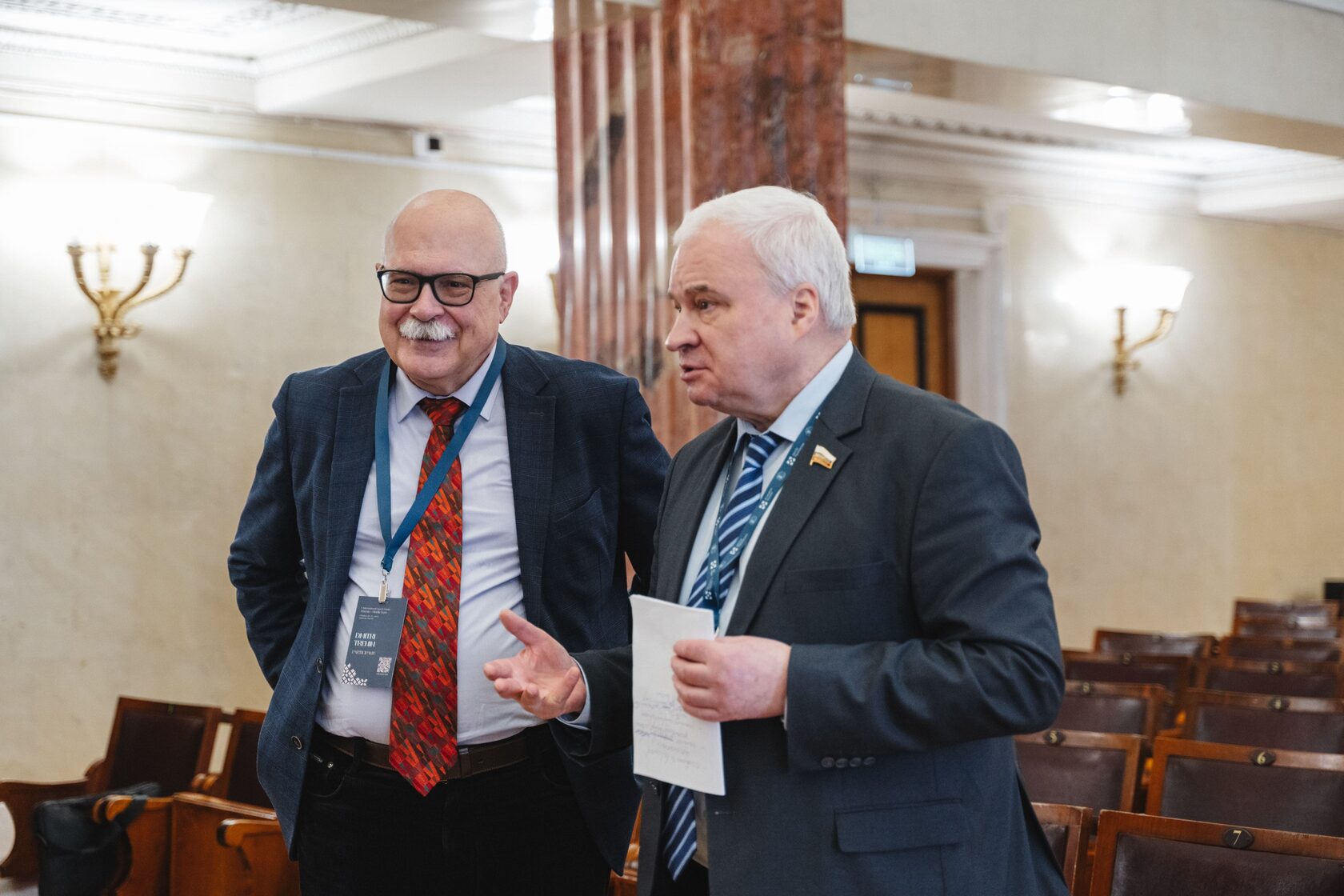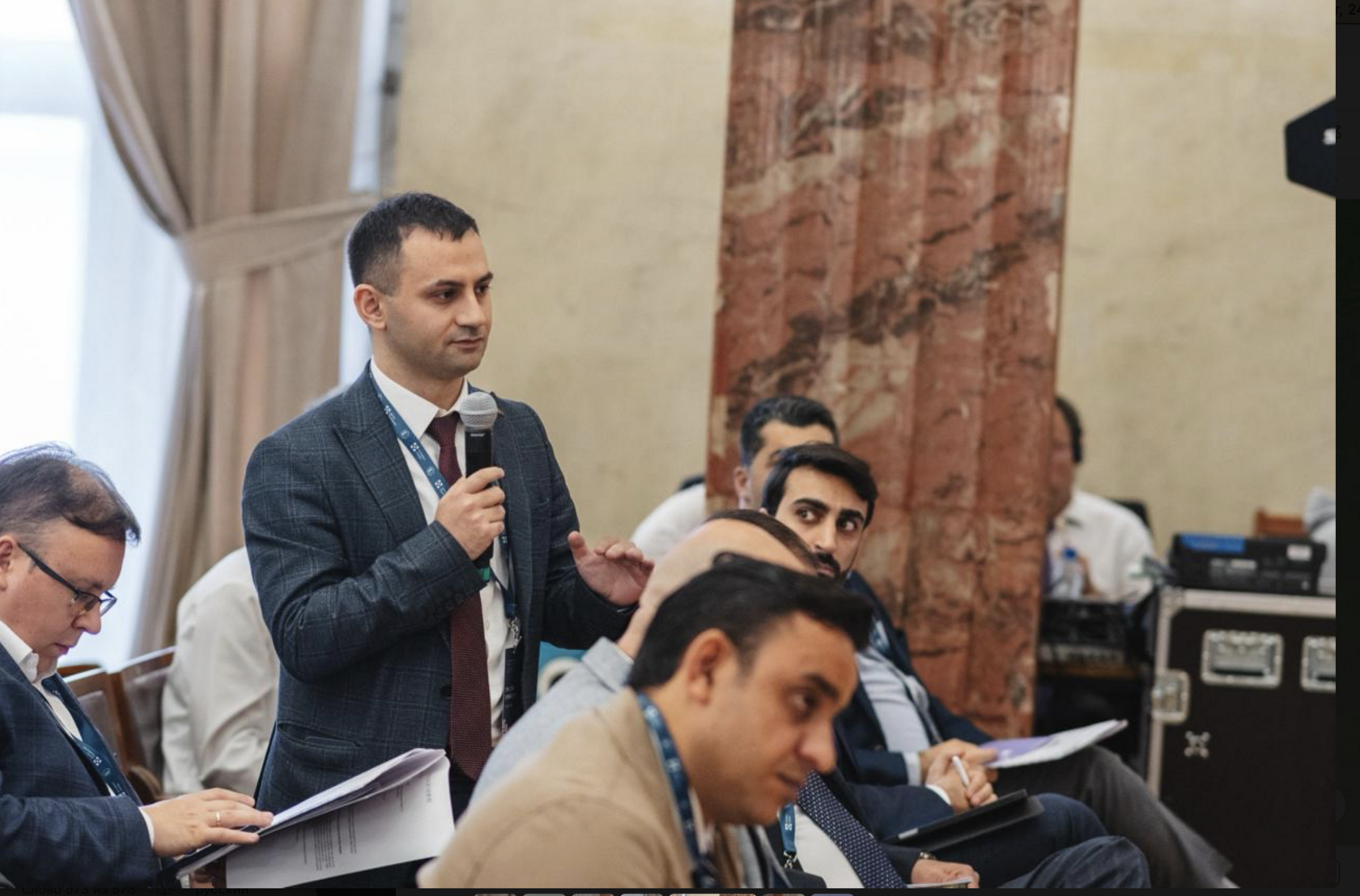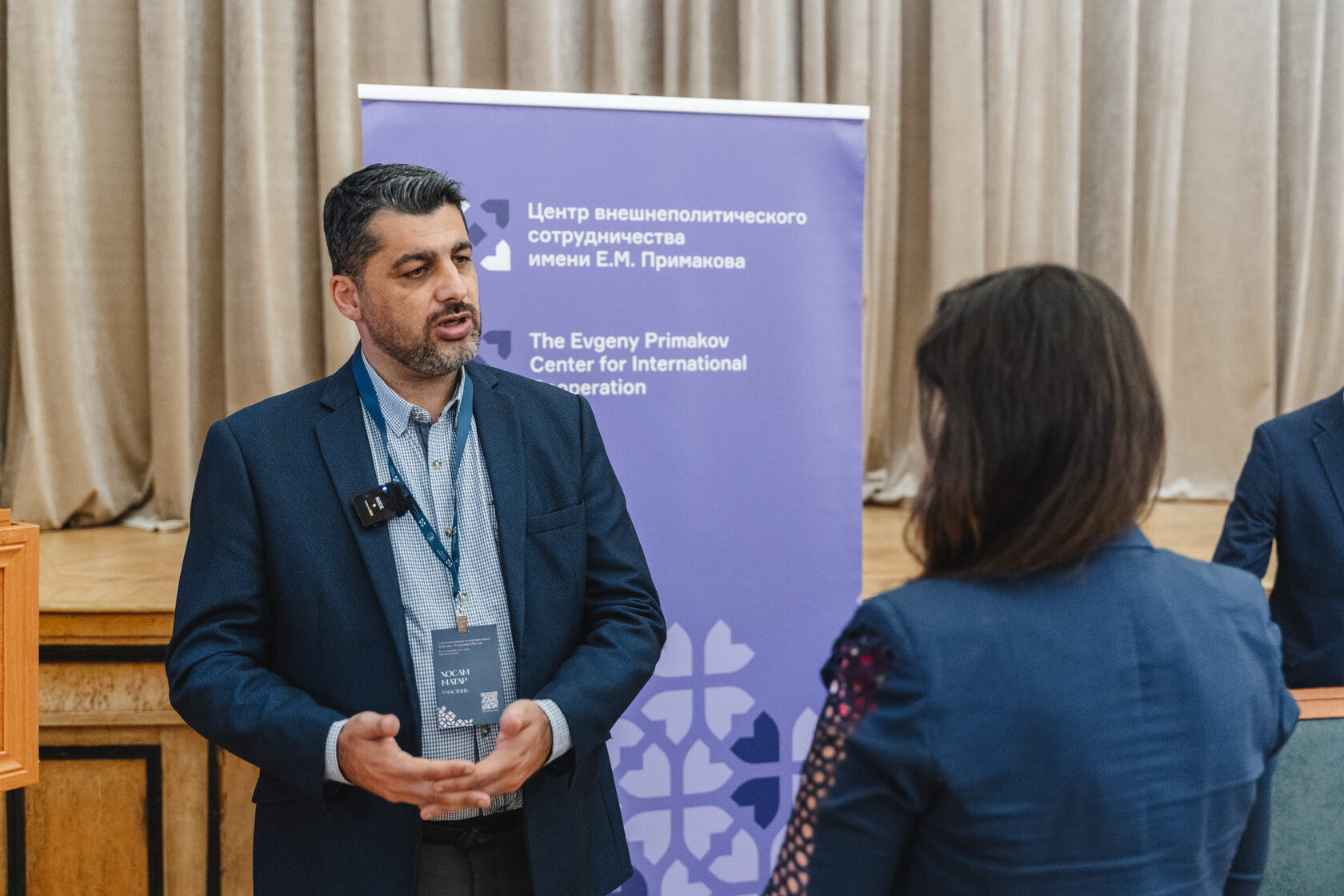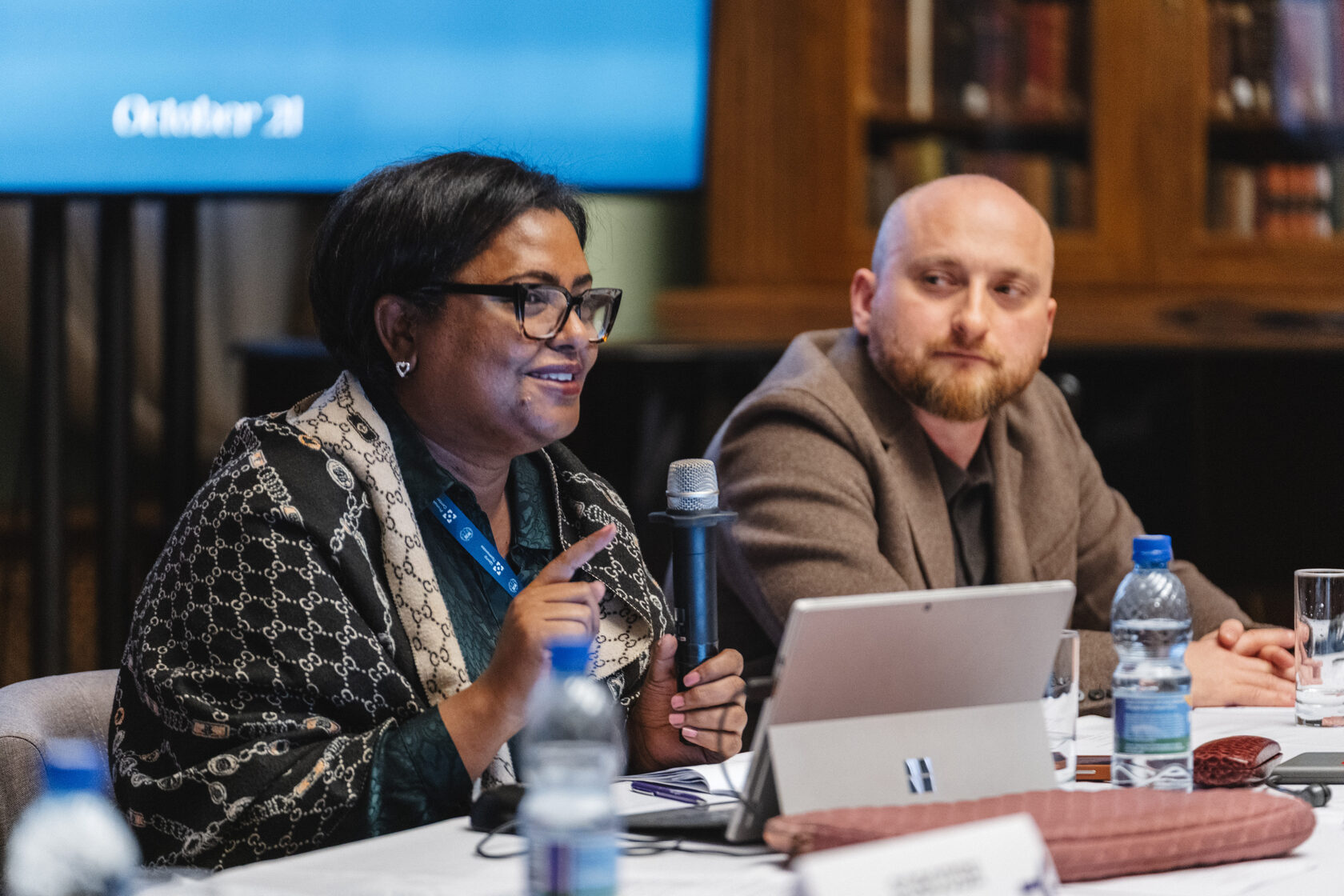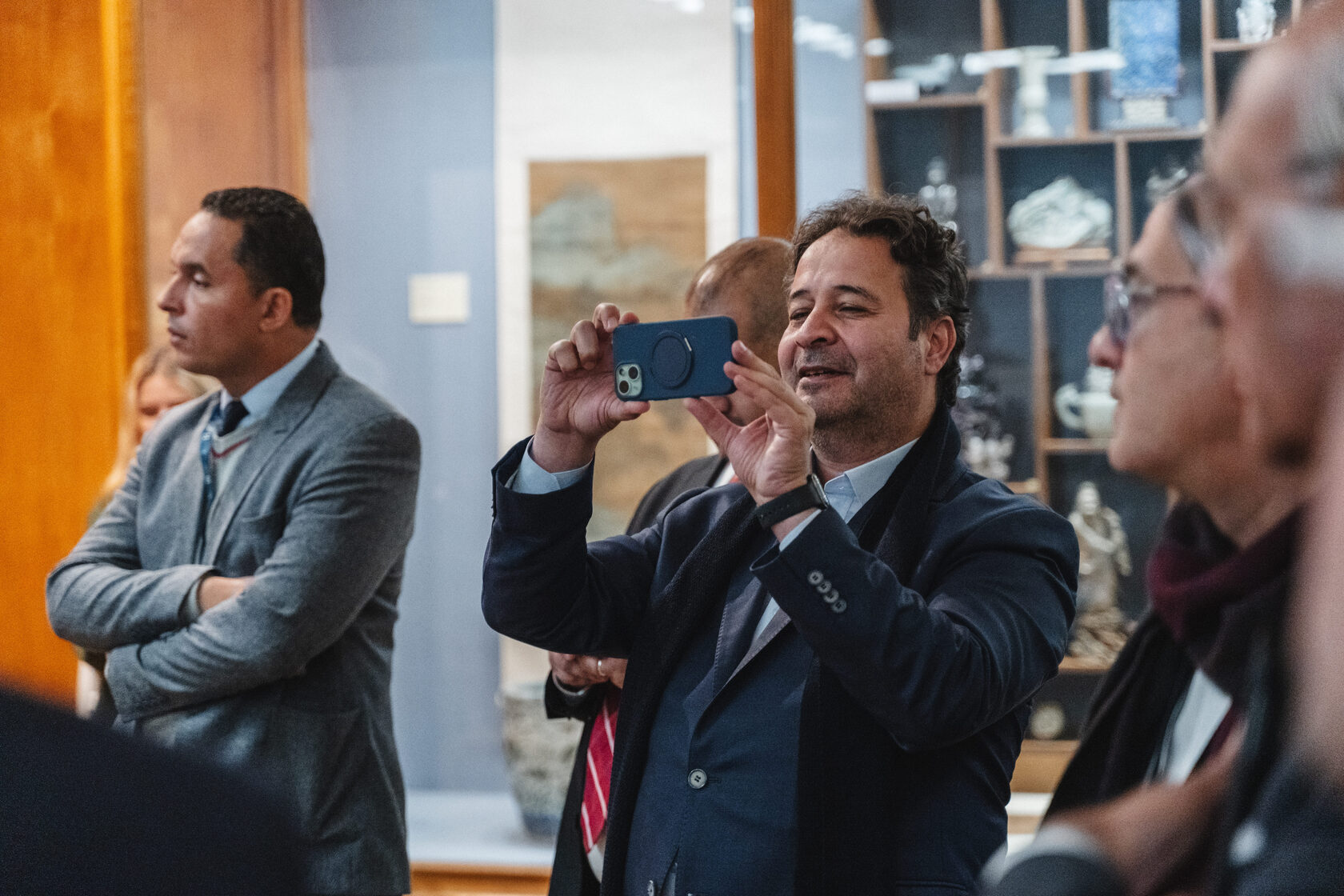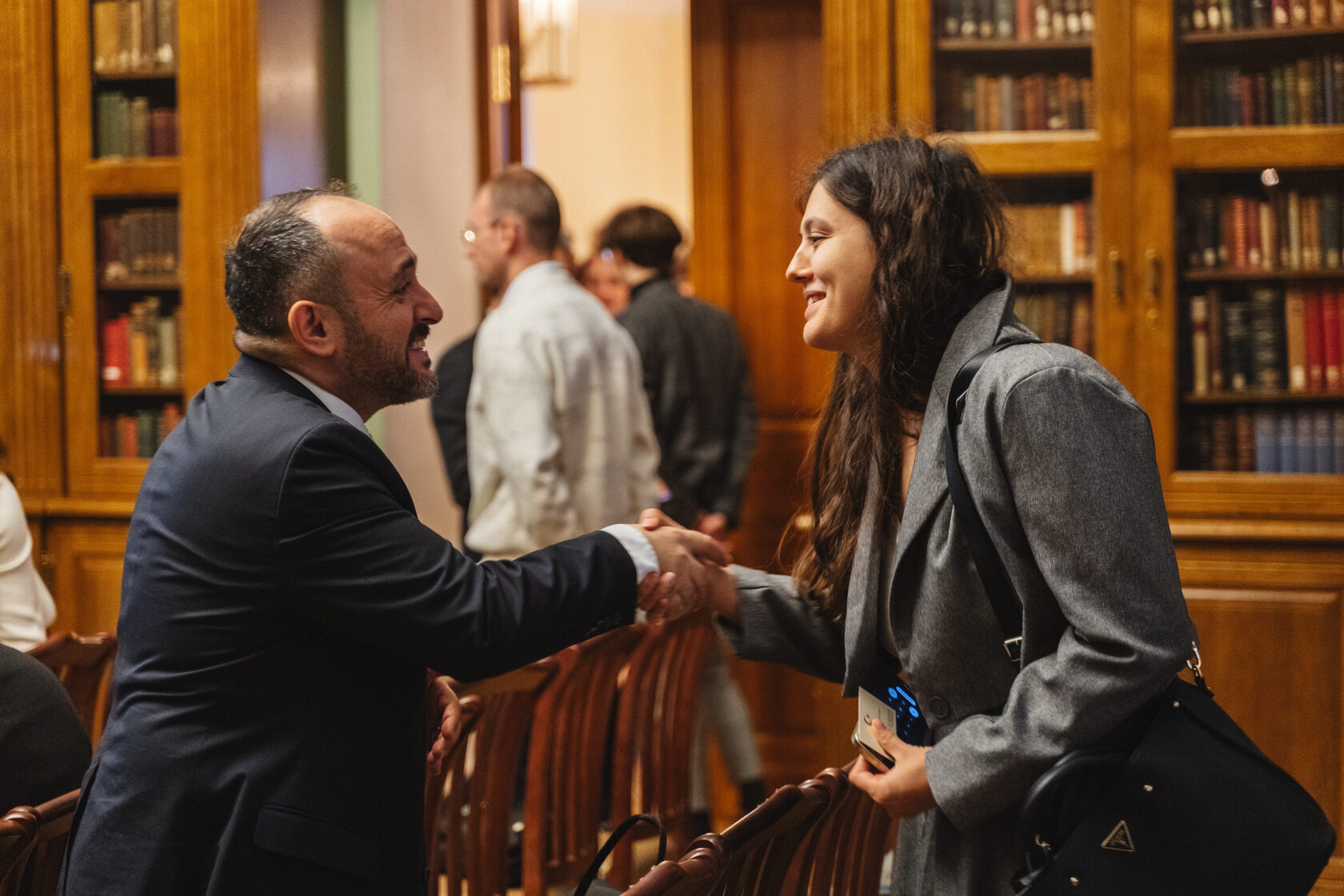From October 19 to 23, the 5th International Research and Expert Forum “Russia — the Middle East” was held in Moscow, organized by the Primakov Center in cooperation with the Institute of Oriental Studies of the Russian Academy of Sciences. The anniversary forum continued the long-standing dialogue between Russian and Middle Eastern experts, bringing together researchers and diplomats from ten countries — Russia, Egypt, Turkey, Jordan, Syria, Iraq, Iran, Lebanon, the UAE, and Kuwait.
The forum traditionally serves as a platform for exchanging views on key regional challenges and trends, strengthening humanitarian and academic ties, and discussing practical aspects of Russia’s cooperation with Middle Eastern countries.
The first day took place at the Russian State Library, where welcoming remarks were delivered by Executive Director of the Primakov Center Viktoria Karslieva and Deputy Director for Research of the Institute of Oriental Studies, Doctor of Political Sciences Vasily Kuznetsov. The plenary discussion was moderated by Fyodor Lukyanov, Editor-in-Chief of the journal Russia in Global Affairs.
During the discussion, experts addressed new models of partnership between Russia and the countries of the region amid the transformation of the global order and intensifying competition among world centers of power. Participants also discussed the overlapping interests of leading powers in the Middle East, Iran’s influence on the configuration of regional processes, and the evolution of political Islam and its role in shaping social and political movements.
The sessions were moderated by Dmitry Trenin, Academic Supervisor of the Institute of World Military Economy and Strategy at HSE University; Grigory Lukyanov, Research Fellow at the Center for Arab and Islamic Studies of the Institute of Oriental Studies; and Vasily Kuznetsov, Deputy Director of the Institute of Oriental Studies.
The second day, held at the M. I. Rudomino Library for Foreign Literature, focused on the humanitarian and technological dimensions of cooperation. Participants discussed the development of Russia’s humanitarian and cultural projects in the Middle East, as well as the role of academic institutions, public organizations, and cultural centers in fostering mutual understanding and professional ties. The discussion was moderated by Viktoria Karslieva, Executive Director of the Primakov Center. Experts emphasized the growing importance of cultural diplomacy and educational initiatives as tools for sustainable cooperation among the countries of the region.
Special attention that day was given to the technological agenda. During the session “Technology at the Crossroads of Interests: Competition and Cooperation in the Gulf States,” moderated by Alexander Bobrov, Head of Diplomatic Studies at the Institute for Strategic Studies and Forecasts of RUDN University, experts discussed how technological development has become a new dimension of international relations. They focused on the Gulf states’ strategies for achieving technological sovereignty and explored potential avenues for collaboration with Russia in the field of innovation.
A separate session was devoted to the situation in Palestine. Moderated by Nikolay Surkov, Head of the Middle East Studies Group at IMEMO, the discussion examined the humanitarian consequences of the conflict in Gaza and possible pathways to resolution. Participants included representatives of the International Committee of the Red Cross and researchers from Arab countries, who highlighted the need for consolidated international efforts to prevent further escalation and provide assistance to the civilian population.
The day concluded with a presentation by Miguel Palacio, Deputy Director General for Interregional and International Cooperation at the Library for Foreign Literature, who spoke about the library’s work in the Middle Eastern direction and presented joint projects with regional partners.
The day ended with a visit to the State Museum of Oriental Art, where forum guests viewed masterpieces from Ancient China, India, Mongolia, and Indonesia and learned more about the art of the Caucasus.
The final day of the forum was held at the Primakov Center. The plenary session “Syria in an Era of Change: The Future through the Eyes of Regional and Global Actors” was moderated by Ruslan Mamedov, Academic Director of the Primakov Center and Senior Research Fellow at the Institute of Oriental Studies. Experts from Russia, Turkey, and Syria discussed prospects for restoring Syrian statehood, the role of external actors in the settlement process, and opportunities for shaping a new regional security architecture.
The closing session was summarized by Viktoria Karslieva, Executive Director of the Primakov Center, and Vasily Kuznetsov, Deputy Director of the Institute of Oriental Studies, who emphasized the importance of the forum as a unique expert space that unites researchers and practitioners from various countries.
For five consecutive years, the “Russia — the Middle East” forum has remained a venue where science, diplomacy, and analytical thought come together in a vibrant dialogue. Each year, the geography of participants, the range of topics, and the depth of professional engagement expand. The project has become not only a tradition but also an intellectual platform of trust that strengthens Russia’s partnership with Middle Eastern countries — through ideas, knowledge, and real initiatives.
The forum traditionally serves as a platform for exchanging views on key regional challenges and trends, strengthening humanitarian and academic ties, and discussing practical aspects of Russia’s cooperation with Middle Eastern countries.
Russian State Library
The first day took place at the Russian State Library, where welcoming remarks were delivered by Executive Director of the Primakov Center Viktoria Karslieva and Deputy Director for Research of the Institute of Oriental Studies, Doctor of Political Sciences Vasily Kuznetsov. The plenary discussion was moderated by Fyodor Lukyanov, Editor-in-Chief of the journal Russia in Global Affairs.
During the discussion, experts addressed new models of partnership between Russia and the countries of the region amid the transformation of the global order and intensifying competition among world centers of power. Participants also discussed the overlapping interests of leading powers in the Middle East, Iran’s influence on the configuration of regional processes, and the evolution of political Islam and its role in shaping social and political movements.
The sessions were moderated by Dmitry Trenin, Academic Supervisor of the Institute of World Military Economy and Strategy at HSE University; Grigory Lukyanov, Research Fellow at the Center for Arab and Islamic Studies of the Institute of Oriental Studies; and Vasily Kuznetsov, Deputy Director of the Institute of Oriental Studies.
Library for Foreign Literature
The second day, held at the M. I. Rudomino Library for Foreign Literature, focused on the humanitarian and technological dimensions of cooperation. Participants discussed the development of Russia’s humanitarian and cultural projects in the Middle East, as well as the role of academic institutions, public organizations, and cultural centers in fostering mutual understanding and professional ties. The discussion was moderated by Viktoria Karslieva, Executive Director of the Primakov Center. Experts emphasized the growing importance of cultural diplomacy and educational initiatives as tools for sustainable cooperation among the countries of the region.
Special attention that day was given to the technological agenda. During the session “Technology at the Crossroads of Interests: Competition and Cooperation in the Gulf States,” moderated by Alexander Bobrov, Head of Diplomatic Studies at the Institute for Strategic Studies and Forecasts of RUDN University, experts discussed how technological development has become a new dimension of international relations. They focused on the Gulf states’ strategies for achieving technological sovereignty and explored potential avenues for collaboration with Russia in the field of innovation.
A separate session was devoted to the situation in Palestine. Moderated by Nikolay Surkov, Head of the Middle East Studies Group at IMEMO, the discussion examined the humanitarian consequences of the conflict in Gaza and possible pathways to resolution. Participants included representatives of the International Committee of the Red Cross and researchers from Arab countries, who highlighted the need for consolidated international efforts to prevent further escalation and provide assistance to the civilian population.
The day concluded with a presentation by Miguel Palacio, Deputy Director General for Interregional and International Cooperation at the Library for Foreign Literature, who spoke about the library’s work in the Middle Eastern direction and presented joint projects with regional partners.
The day ended with a visit to the State Museum of Oriental Art, where forum guests viewed masterpieces from Ancient China, India, Mongolia, and Indonesia and learned more about the art of the Caucasus.
The Primakov Center
The final day of the forum was held at the Primakov Center. The plenary session “Syria in an Era of Change: The Future through the Eyes of Regional and Global Actors” was moderated by Ruslan Mamedov, Academic Director of the Primakov Center and Senior Research Fellow at the Institute of Oriental Studies. Experts from Russia, Turkey, and Syria discussed prospects for restoring Syrian statehood, the role of external actors in the settlement process, and opportunities for shaping a new regional security architecture.
The closing session was summarized by Viktoria Karslieva, Executive Director of the Primakov Center, and Vasily Kuznetsov, Deputy Director of the Institute of Oriental Studies, who emphasized the importance of the forum as a unique expert space that unites researchers and practitioners from various countries.
For five consecutive years, the “Russia — the Middle East” forum has remained a venue where science, diplomacy, and analytical thought come together in a vibrant dialogue. Each year, the geography of participants, the range of topics, and the depth of professional engagement expand. The project has become not only a tradition but also an intellectual platform of trust that strengthens Russia’s partnership with Middle Eastern countries — through ideas, knowledge, and real initiatives.
